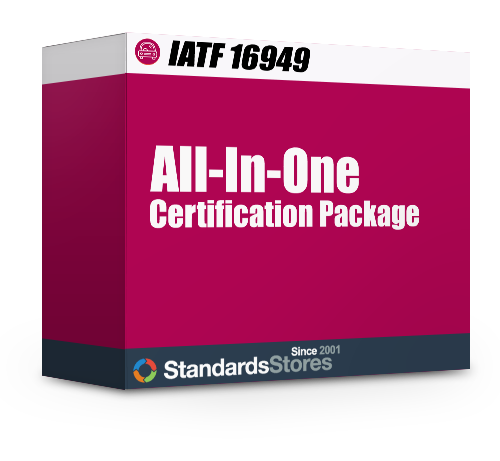Evaluating the IATF 16949 Quality Management System’s Performance
- Determine what, how, when and by whom results will be measured and evaluated
- Determine the methods for obtaining, monitoring and reviewing customer satisfaction
- Have an objective, planned and effectively implemented internal audit program
- Top management is to review the QMS at planned intervals
Section 9 Performance Evaluation
Section 9.1: Monitoring, Measurement, Analysis and Evaluation
The standard emphasizes both a process approach, as well as the need to use a review or checking phase, which you can from the Plan>Do>Check>Act approach. Furthermore, the organization is required to determine what data needs to be collected, how that data is collected and interpreted, and what results should be acted upon.
All results need to be verified (audited), and also are subject to management’s direct review. This process also must itself be evaluated for effectiveness.
In addition to ISO 9001 requirements, supplemental requirements for IATF 16949 are as follows:
- 9.1.1.1 Monitoring and measurement of manufacturing processes
- 9.1.1.2 Identification of statistical tools
- 9.1.1.3 Application of statistical concepts
Section 9.1.2: Customer Satisfaction
According to ISO 9001, data that regards customer satisfaction needs to be collected, analyzed and monitored in order to ensure that customer expectations are being met. Data can be collected in a variety of ways and includes: surveys, direct customer communication, warranty activity and sales channel reports. The data collected can include measures around on time delivery, product/service quality, or order accuracy.
Supplementary information for 9.1.2, for IATF states that customer satisfaction must be monitored continuously through evaluations of internal and external performance indicators to ensure compliance to the product and process specifications and other customer requirements.
Section 9.1.3: Analysis and Evaluation
Any data your organization has collected that reflects the performance of your QMS must be analyzed and evaluated to decide if improvements need to be made. IATF 16949 states that any patterns within quality and operational performance must be compared with progress towards objectives and there after lead to action that supports prioritization of activity for improving customer satisfaction.
Your organization must confirm that the QMS conforms to the IATF 16949 standard, and to be able to confirm that your organization is meeting the standards, internal audits are required at planned intervals. Formal audits are required, and a program needs to be established for the audit that includes what methods are used, the scope and the frequency as well as assigning responsibility to an auditor that is objective. Audits are used to make any corrections and improvements to the QMS.
In addition to the Iso 9001 standards, IATF 16949 requires that audits must be documented, and the process must include the development and implementation of an internal audit program, which has to cover the entire QMS, manufacturing and products. The audit needs to be prioritized.
In addition, quality management system which requires organizations to audit all QMS processes over three year periods. Furthermore, the organization must audit all manufacturing processes over this same period of time to determine their effectiveness. Product audits must also be completed using customer-specific required approaches when deemed appropriate.
Section 9.3: Management Review
Data collected on the QMS performance and determination of any support, changes, or improvements must be reviewed and discussed by top management at planned intervals.
IATF 16949 has additional supplementary requirements for management review. In addition to ISO 9001, management review must be conducted annually, with the potential for increasing the frequency of reviews depending on the risk to compliance, and be more thorough with inputs and outputs.
Please note that certain text from the ISO 9001 standard is only used for instructional purposes. Standard Stores recognizes and respects the International Organization for Standardization (ISO) copyright and intellectual property guidelines.


